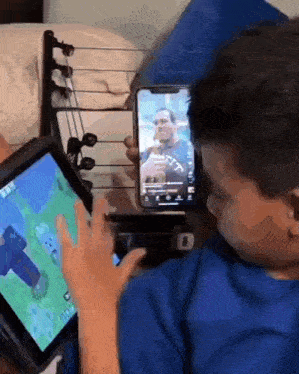We are all addicted. Every living moment, there is another medium demanding our attention–TikToks, Instagram reels, music. Our attention spans are gone, and living in the age of constant stimulation from every source around us only feeds the monster engulfing our lives. As we allow our brains to turn to mush, we seem to forget the imminent issue that we can’t focus on anything past a few seconds. The real problem? We are too hooked to notice.
This is not a mild inconvenience, either. The way humans work, interact, and think has become lazier because of the need to instantly satiate our needs. Research by ExpertX shows that attention spans have significantly deteriorated as a direct result of digital environments, especially social media. Individuals are now more prone to task-switching, often in response to interruptions from apps such as TikTok and Instagram. The quick, attention-grabbing content that these applications are centered around makes it nearly impossible to focus on a single task for long periods. The average person engages with their phone about 228 times a day, with each interaction lasting about 10 seconds, according to a study conducted by the Center for Brain, Mind and Society (CBMS) at Columbia University.
Frequent task-switching significantly impairs learning and ability, according to the CBMS. When we are constantly disrupted, it becomes harder to process information deeply. This affects our ability to retain vital knowledge and use it effectively. Not only are we distracted, these interruptions are actively reshaping our brains. Constantly striving for that next little dopamine kick and wanting instant gratification is taking a negative toll on us. Overstimulation is creating a generation that cannot finish tasks without checking their phones every few minutes. It is also leading to a workplace that is unable to concentrate and friendships that suffer because people cannot stay off of their phones. This is all accepted as normal.
We are growing up in this new reality, and we don’t know how to break out of it. We are conscious of this, yet it’s impossible to escape because it’s embedded in our lives. Methods like limiting screen time, taking breaks, and going the entire day without viewing our phone won’t ever beat the irresistible pull that my flashing, colorful, handheld brick has on us. It’s like an itch you are told not to scratch; lingering, pestering, and irritating, but you always succumb to the feeling no matter how hard you try to resist.
Undoubtedly, many people share this experience. It’s effortless to let your mind wander, only to realize hours later that you’ve lost precious time to endless doom-scrolling. Dreams, aspirations, and goals are often left unmet because we too easily submit to the meaningless distractions of figures like Haliey Welch and Big Justice. It’s disheartening to witness peers–people with so much potential–fail to break the ceiling and reach for the stars, all because their attention spans have dwindled to mere seconds, shorter than a goldfish’s. This reality is not only unsettling, it is terrifying.
It’s a scary thought: we are becoming a generation that can’t sit still, concentrate, or focus on anything for long enough to make a real impact. We are becoming a generation that is so caught up in the distractions that we forget to ask ourselves what this way of living costs. What are we giving up in exchange for the constant rush of dopamine we get so easily from our screens, for always needing to be connected, or to stay entertained? Maybe it is time to stop and ponder: are we truly living, or are we just existing in a cycle of constant stimulation, unable to notice what we are losing along the way?
Works Cited:
The distraction epidemic: Why we can’t Focus Anymore. The Distraction Epidemic: Why We Can’t Focus Anymore. (n.d.). https://www.expertx.org/issues/2023/january-2023/the-distraction-epidemic-why-we-cant-focus-anymore
D’Aurizio, S. (2024, April 2). Are attention spans actually decreasing?. The Center for Brain, Mind and Society. https://brainmindsociety.org/posts/are-attention-spans-actually-decreasing

 Generation Alpha: The Rise of iPad Kids
Generation Alpha: The Rise of iPad Kids